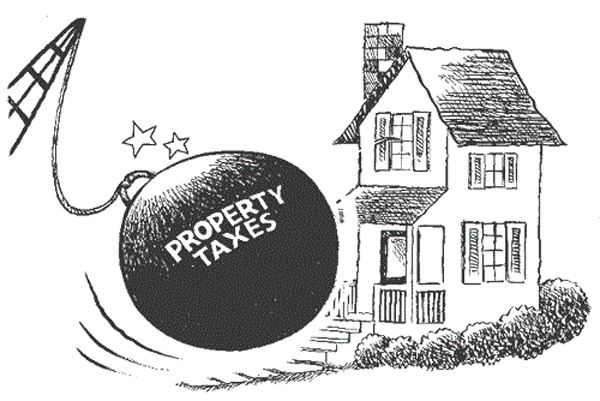Perhaps your state legislators are considering proposals for property tax reform like ours in Texas. The question to put to them is not “What reforms are you proposing for property tax assessments” but rather “Why do we even have a property tax in the first place?”
In his Second Treatise of Government published in 1689, the English political philosopher John Locke set forth the principle that personal property is the basis of personal liberty:
“…every man has a property in his own person; this nobody has any right to but himself. The labour of his body and the work of his hands we may say are properly his…this labour being the unquestionable property of the labourer, no man but he can have a right to…”
Some 130 years later, John Taylor, a close compatriot of Thomas Jefferson, went even further in his work Construction Construed and Constitutions Vindicated, published in 1820, that not only is individual private property sacrosanct, but we do not have the right to hand control of it over to any other group or government:
“Societies are not instituted for the purpose of enabling governments to destroy natural rights; and as no man possesses a natural, or necessary, or convenient power over the natural rights of another, a majority of men cannot have a right to surrender to a government an absolute power over these natural rights…Neither nature, nor necessity, nor convenience, has invested the people, or their representatives, with an absolute power over private property, or over conscience;”
An income tax is, like the property tax, based upon the foregoing quotes, an assault upon individual property rights. Thus, if a state has an income tax, it too should be eliminated. But, if the income tax and property tax are eliminated, with what do you replace it? The answer: a consumption tax (or sales tax at the retail level only). This is not what some propose, a Value Added Tax, as that is an insidious, hidden tax (not to mention an oxymoron – what tax ever added “value” to anything?). Briefly, several advantages will come from this:
- If you tax everyone and every organization, the tax base will be greatly expanded and thereby require a smaller tax rate than would otherwise be required.
- For the same reason, if everything is taxed, not only will the rate be lower, but politicians will not be able to monkey with the tax code via legislation so as to curry favor with special interests or voting blocks of constituents.
- Businesses will have lower costs and therefore their prices should come down. If they don’t lower their prices due to the decrease in expenses, then eventually free market competition from businesses that do will force each to become more price competitive.
- Non-citizens who pass through or come for tourism and make purchases, will be contributing to the tax revenue, thus again, expanding the tax base.
- Cities/states would no longer be able to use tax abatements to lure businesses to their locality which always makes the shortfall that results fall upon small businesses and homeowners.
There are any number of ways in which this revenue could then be distributed to the cities, counties and school districts, and that would be something for the legislators to determine would be the best approach for their particular state.
We do not need property tax reform; we need property tax R & R – Repeal and Replace. Without a property tax one thing is certain – when you become a homeowner it is you who are the owner. The state will never be able to seize your property because of a failure or inability to pay your property taxes.
-April 22, 2016
